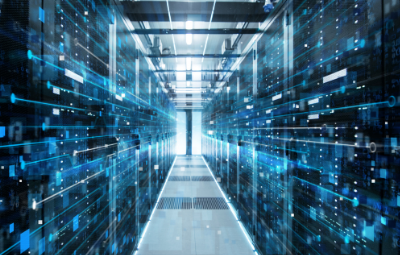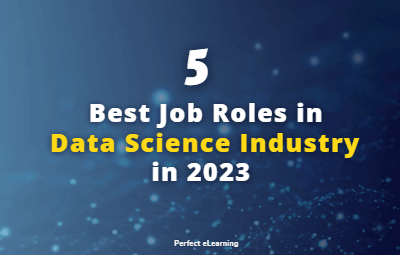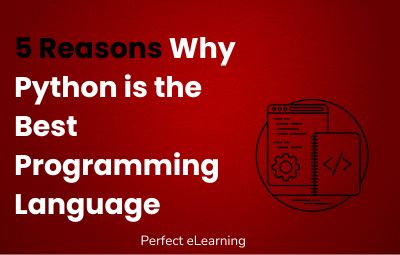

The introduction of new technologies such as artificial intelligence, machine learning, and big data analytics have revolutionized the field of data science. With the amount of data being generated every day, it's crucial to leverage these technologies to turn data into valuable insights. Here are some of the trends and predictions that we can expect to see in data science in 2023.
Trend 1: Rise of Automated Machine Learning
Automated machine learning (AutoML) is a rapidly growing trend in data science. It involves automating the process of building and deploying machine learning models, making it easier for non-experts to use machine learning. In 2023, we can expect AutoML to become even more popular, as businesses continue to look for ways to simplify their data science workflows.
Trend 2: Increased Use of Graph Databases
Graph databases are another trend that will continue to gain traction in 2023. These databases allow data scientists to represent data in a graphical format, making it easier to identify patterns and relationships. As data becomes more complex, graph databases will become more important, enabling more accurate and efficient analysis.
Trend 3: Advancements in Natural Language Processing (NLP)
Natural language processing (NLP) has already made significant strides in recent years, but we can expect even more advancements in 2023. NLP technology is used to analyze and interpret human language, making it possible to automate tasks such as customer service, sentiment analysis, and content creation. In 2023, we can expect to see even more sophisticated NLP models that can understand context and nuance, making it possible to analyze language on a deeper level.
Trend 4: Increased Focus on Explainable AI (XAI)
Explainable AI (XAI) is an emerging field that focuses on making machine learning models more transparent and understandable. As AI becomes more prevalent in society, it's important to ensure that these models are explainable and interpretable, so that decisions made by machines can be understood and justified. In 2023, we can expect to see increased focus on XAI, as businesses seek to build trust and transparency in their AI systems.
Trend 5: Greater Adoption of Blockchain Technology
Blockchain technology is already being used in various industries, but it has the potential to revolutionize data science as well. Blockchain can be used to securely store and share data, ensuring its authenticity and preventing tampering. In 2023, we can expect to see more businesses adopt blockchain technology in their data science workflows, as they seek to increase security and accountability.
Trend 6: More Emphasis on Data Privacy and Ethics
As data becomes more valuable, it's also becoming more regulated. In 2023, we can expect to see increased emphasis on data privacy and ethics, as governments and organizations seek to protect personal information and prevent misuse. Data scientists will need to be aware of these regulations and develop strategies to ensure that data is collected, stored, and used in a responsible manner.
Conclusion
In conclusion, data science is an ever-evolving field that continues to grow and develop. As we look to 2023, we can expect to see increased adoption of technologies such as AutoML, graph databases, NLP, XAI, and blockchain. At the same time, we can also expect to see increased emphasis on data privacy and ethics. Data science has become an essential part of many businesses, and it's crucial to stay up to date with the latest trends and predictions to remain competitive. By adopting these technologies and focusing on responsible data management, businesses can extract valuable insights from data and gain a competitive edge.
Frequently Asked Questions (FAQs)
Q.What is AutoML?
A.AutoML stands for automated machine learning, which involves automating the process of building and deploying machine learning models, making it easier for non-experts to use machine learning.
Q.What are graph databases?
A.Graph databases are databases that represent data in a graphical format, making it easier to identify patterns and relationships.
Q.What is NLP?
A.NLP stands for natural language processing, which is used to analyze and interpret human language, making it possible to automate tasks such as customer service, sentiment analysis, and content creation.
Q.What is XAI?
A.XAI stands for explainable AI, which focuses on making machine learning models more transparent and understandable.
Perfect eLearning is a tech-enabled education platform that provides IT courses with 100% Internship and Placement support. Perfect eLearning provides both Online classes and Offline classes only in Faridabad.
It provides a wide range of courses in areas such as Artificial Intelligence, Cloud Computing, Data Science, Digital Marketing, Full Stack Web Development, Block Chain, Data Analytics, and Mobile Application Development. Perfect eLearning, with its cutting-edge technology and expert instructors from Adobe, Microsoft, PWC, Google, Amazon, Flipkart, Nestle and Infoedge is the perfect place to start your IT education.
Perfect eLearning in Faridabad provides the training and support you need to succeed in today's fast-paced and constantly evolving tech industry, whether you're just starting out or looking to expand your skill set.
There's something here for everyone. Perfect eLearning provides the best online courses as well as complete internship and placement assistance.
Keep Learning, Keep Growing.
If you are confused and need Guidance over choosing the right programming language or right career in the tech industry, you can schedule a free counselling session with Perfect eLearning experts.


